Carbon steel screws
Carbon steel screws are some of the most widely used fasteners in global industrial and construction sectors. Known for their high tensile strength, affordability, and adaptability, these screws are suitable for a wide range of materials including wood, metal, and plastics.With different grades (e.g., low carbon, medium carbon, and high carbon steel), thread types, and head configurations, carbon steel screws offer a reliable solution for both general-purpose fastening and heavy-duty structural connections.We offer OEM/ODM services and maintain strict quality control to ensure every batch meets international standards such as DIN, ANSI, ISO, and JIS.
Home - Carbon steel screws
Manufacturing Process
Our carbon steel screws are manufactured using a controlled and standardized process to ensure strength, precision, and surface durability: Material Selection
Low carbon steel (e.g., Q195, Q235) – for general use
Medium/High carbon steel (e.g., 45#, 10B21) – for heat-treated or structural screws Cold Heading
Screws are formed with high-speed cold heading machines for consistent head shape and dimensions Thread Rolling
Threads are rolled (not cut), increasing thread strength and reducing risk of fatigue failure
Heat Treatment (as needed)
Quenching and tempering to enhance mechanical properties and hardness Surface Finishing Zinc plating (white/yellow/black)
Phosphating (for dry environments) Black oxide
Dacromet or Ruspert for anti-corrosion Inspection & Packaging
GO/NOGO thread testing, salt spray test, and mechanical strength testing
Bulk, box, or retail packaging with barcode, OEM label, and pallets for export
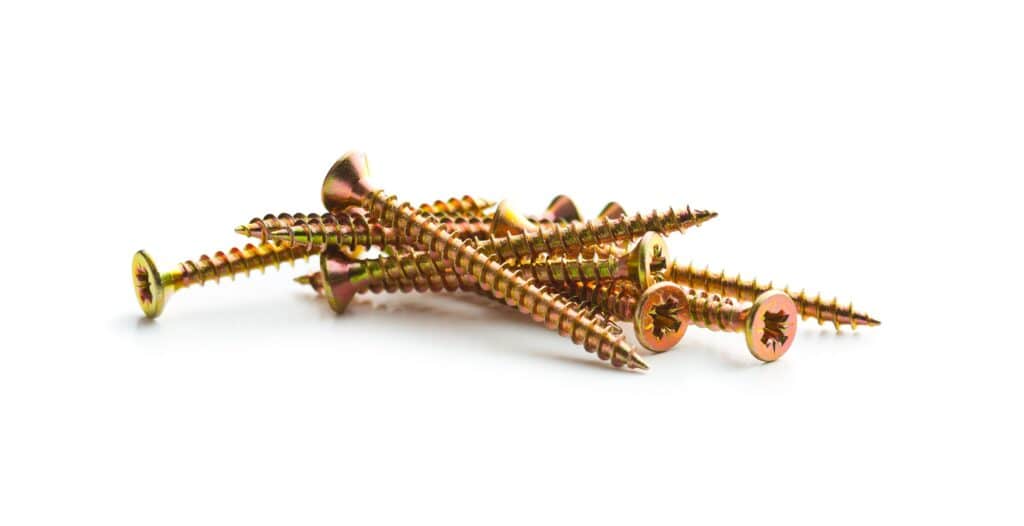
Typical Product Variants
| Product Name | Material Grade | Surface Finish | Application Use |
|---|---|---|---|
| Phillips Flat Head Screw | Q235 Carbon Steel | Zinc Plated | Furniture, Woodworking |
| Hex Head Self-Tapping Screw | 10B21 | Black Oxide | Metal-to-Metal Fastening |
| Truss Head Machine Screw | Q195 | Nickel-Plated | Light Fixtures, Panels |
| Heat-Treated Socket Screw | 45# Steel | Dacromet Coating | Machinery, Automotive |
| Drywall Screw (Bugle Head) | Medium Carbon | Phosphate-Coated | Interior Wall Fastening |
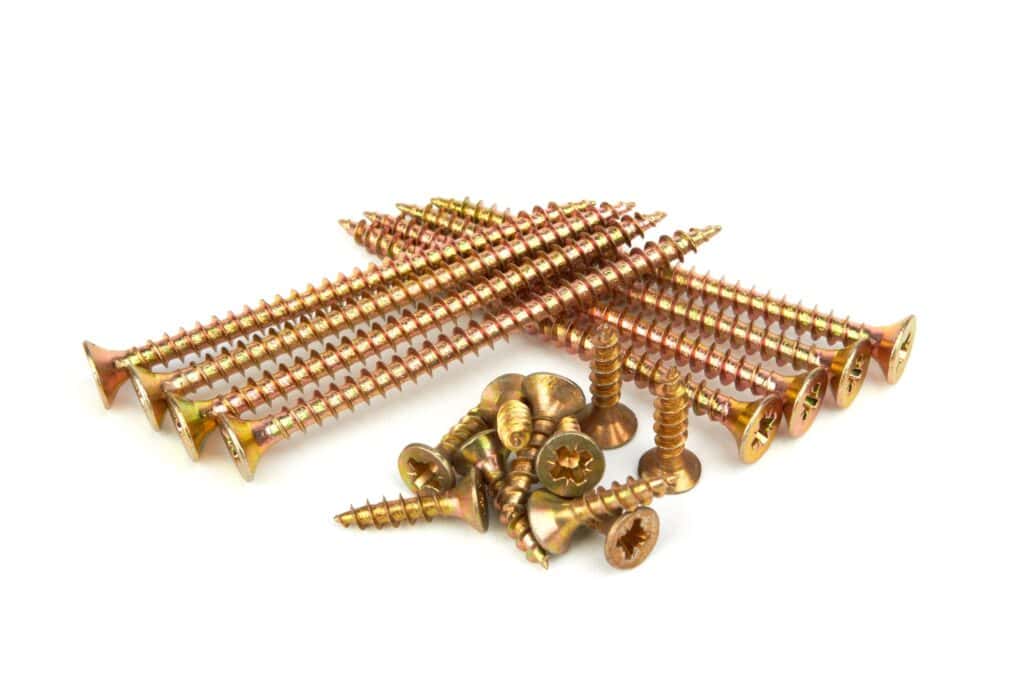
Functions & Advantages
High strength-to-cost ratio – Excellent load capacity at an affordable price
Versatile – Available in many sizes, thread types, and head shapes
Customizable finishes – Zinc, phosphate, or black oxide for corrosion protection
Heat-treatable – For demanding structural or automotive applications
Strong thread engagement – Especially when used in wood, plastic, or soft metals
Wide compatibility – Suitable for indoor, dry, or moderately humid environments
Typical products
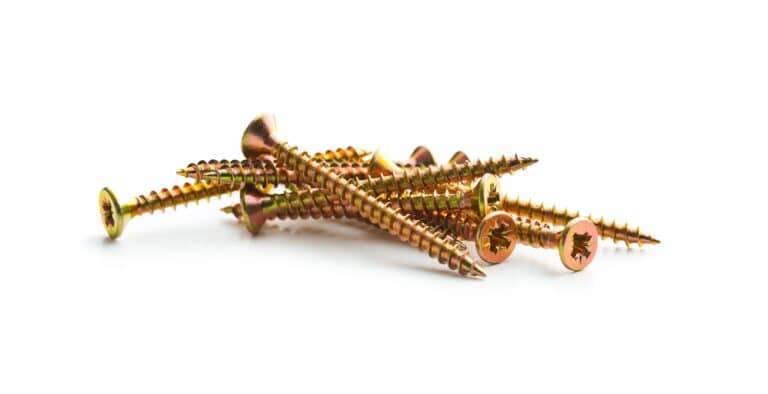
Self-Tapping Screw
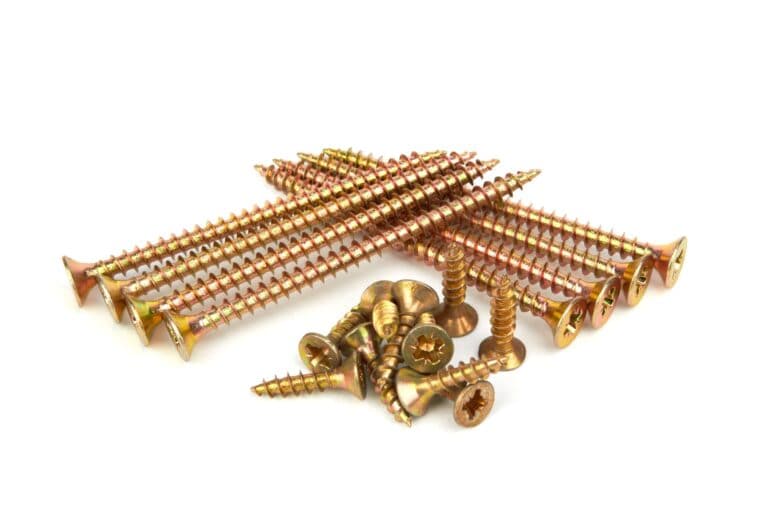
Drywall Screw
Applications and Use Cases

In modern flat-pack furniture manufacturing, carbon steel machine screws are commonly paired with cross dowels to create strong, concealed joints. These fasteners are ideal for connecting panels at right angles — such as in beds, tables, or storage units — where a secure and flush finish is needed.Why Carbon Steel Screws Work:The precise machine threads allow for smooth engagement with the dowel's internal thread.Zinc-plated or black oxide finishes protect against rust, especially during shipping or long-term use in humid interiors.Their strength enables disassembly and reassembly without thread damage — essential for modular or exported furniture.Key Benefits:Strong load-bearing joints without visible screw headsCompatible with both hardwood and particle board panelsCost-effective solution for mass production
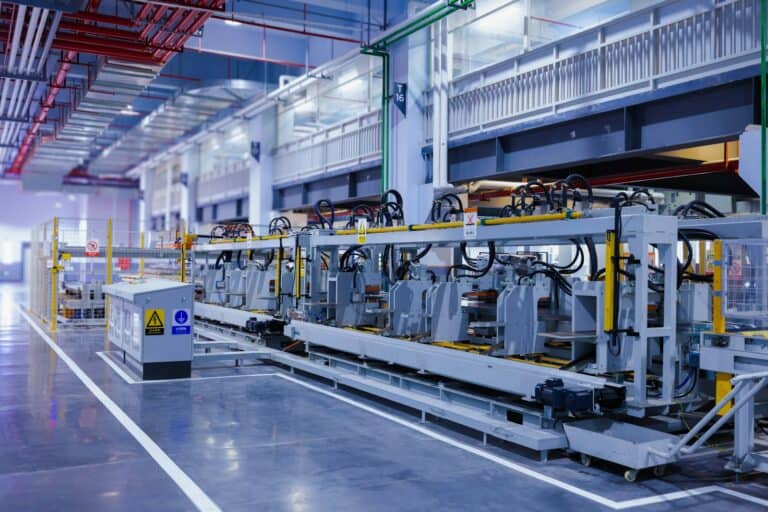
In industrial equipment assembly, carbon steel hex head screws are widely used to secure mounting brackets, cable trays, and protective covers within machinery enclosures. These applications demand precision and high shear strength.Why Carbon Steel Screws Work:Heat-treated medium carbon steel ensures strength under dynamic load.Hex heads allow for fast torque-controlled installation with power tools.Different coatings (e.g., black oxide or Dacromet) provide wear and corrosion resistance in factory or outdoor environments.Key Benefits:Prevents loosening due to vibration or repeated operationEasy to install and remove during maintenance cyclesWorks with steel brackets, aluminum housings, or plastic bases
The Best Uses for Carbon Steel Screws: A Comprehensive Guide
Introduction to Carbon Steel
Carbon steel is an alloy of iron and carbon, known for its strength, durability, and cost-effectiveness in various industrial and construction projects.
The carbon content in carbon steel influences its hardness, mechanical properties, and susceptibility to corrosion.
Understanding the properties of carbon steel is essential for determining its suitability for specific applications, including its use in stainless steel fasteners and carbon steel fasteners.
Carbon steel screws are widely used in construction, manufacturing, and maintenance applications requiring durable and cost-effective solutions.
Types of Fasteners
Fasteners can be categorized into different types, including stainless steel screws, carbon steel fasteners, and other specialty fasteners.
Each type of fastener has its unique properties, advantages, and disadvantages, making them suitable for specific applications and environments.
Stainless steel fasteners, for example, offer superior corrosion resistance, while carbon steel fasteners provide higher tensile strength and lower cost.
The choice of fastener depends on the specific requirements of the project, including strength, corrosion resistance, and cost effectiveness.
Carbon Steel Fasteners
Carbon steel fasteners are a popular choice for many industrial and construction applications due to their optimal balance of strength, durability, and cost.
They are available in different grades, including low carbon steel, medium carbon steel, and high carbon steel, each with its unique properties and applications.
Medium carbon steel fasteners, for instance, offer a balance of strength and toughness, making them suitable for more demanding applications.
Carbon steel fasteners are commonly used in construction, automotive, machinery, and equipment manufacturing, where reliable strength and durability are essential.
Corrosion Resistance Comparison
Corrosion resistance is a critical factor in the selection of fasteners, particularly in harsh environments prone to moisture, chemicals, and high humidity.
Stainless steel fasteners, such as stainless steel screws, offer superior corrosion resistance due to their high chromium content, making them ideal for outdoor applications and corrosive environments.
Carbon steel fasteners, on the other hand, are more susceptible to corrosion but can be protected with coatings, such as zinc plating or hot-dip galvanizing, to enhance their corrosion resistance.
The choice between stainless steel and carbon steel fasteners depends on the specific environmental conditions and the required level of corrosion resistance.
Stainless Steel Screws
Stainless steel screws are a type of fastener that offers superior corrosion resistance, making them ideal for harsh environments, including marine and outdoor applications.
They are available in different grades, including 304 and 316, each with its unique properties and applications.
Stainless steel screws are commonly used in construction, industrial, and engineering applications where high strength, durability, and corrosion resistance are required.
They are also used in stainless steel components, such as stainless steel fasteners, to provide a high level of corrosion resistance and durability.
Advanced Alloying Techniques
Advanced alloying techniques have led to the development of new carbon steel alloys with enhanced properties, including higher strength, toughness, and corrosion resistance.
These alloys are used in demanding applications, including high-pressure and high-temperature environments, where traditional carbon steel fasteners may not be suitable.
The use of advanced alloying techniques has expanded the range of applications for carbon steel fasteners, making them more competitive with stainless steel fasteners.
The development of new alloys has also improved the corrosion resistance of carbon steel fasteners, making them more suitable for harsh environments.
Stainless Steel
Stainless steel is a corrosion-resistant metal alloy that contains a minimum of 10.5% chromium.
It is widely used in industrial, construction, and engineering applications where high strength, durability, and corrosion resistance are required.
Stainless steel fasteners, including stainless steel screws, offer superior corrosion resistance, making them ideal for harsh environments and outdoor applications.
The use of stainless steel fasteners has improved the longevity and performance of structures and equipment in demanding environments.
Fastener Selection
The selection of fasteners depends on the specific requirements of the project, including strength, corrosion resistance, and cost effectiveness.
Carbon steel fasteners are suitable for applications where high strength and durability are required, while stainless steel fasteners are used in applications where corrosion resistance is critical.
The choice of fastener also depends on the environmental conditions, including moisture, chemicals, and high humidity.
The right fasteners can improve the performance and longevity of structures and equipment, while reducing maintenance and repair costs.
Sourcing and Manufacturing
Industrial fasteners, including carbon steel and stainless steel fasteners, are sourced from reputable manufacturers and suppliers.
The manufacturing process involves advanced techniques, including forging, machining, and coating, to produce high-quality fasteners.
The quality of fasteners is critical to the performance and longevity of structures and equipment, and manufacturers must adhere to strict standards and specifications.
The sourcing and manufacturing of fasteners must also consider environmental and social factors, including sustainability and labor practices.
Types of Carbon Steel Screws and Their Grades
Carbon steel screws come in various grades, each designed to meet specific strength requirements and applications. The grades typically include low carbon steel, medium carbon steel, and high carbon steel. Low carbon steel screws have a lower carbon content, making them more ductile and suitable for indoor applications where corrosion is less of a concern. Medium carbon steel screws offer a balance of strength and toughness, making them ideal for high stress applications and structural applications that involve exposure to moderate loads. High carbon steel screws provide the highest tensile strength and hardness, suitable for high tensile stress environments but may be more susceptible to rust if not properly protected.
Applications of Carbon Steel Screws
Carbon steel screws are widely used in both indoor and outdoor use scenarios. They are commonly installed in construction, automotive, machinery, and equipment manufacturing projects where durability and cost effectiveness are critical. However, since carbon steel screws are typically exposed to moisture and chemicals, they require protective coatings such as zinc plating or hot-dip galvanizing to maintain corrosion resistance and prevent rust. These screws are especially suitable for structural applications that do not involve exposure to harsh corrosive environments.
Comparing Carbon Steel and Stainless Steel Screws
When selecting the right fasteners for a project, it is important to determine the environmental conditions and strength requirements. Stainless steel screws contain nickel and chromium, which provide superior corrosion resistance, making them suitable for harsh environments prone to high humidity, chemicals, and marine exposure. Carbon steel screws, while more cost effective and offering higher strength, are less corrosion resistant and must be maintained properly to avoid rust. In applications that involve exposure to heat or lead, the choice of material and grade must be carefully filtered to ensure longevity and performance.
Maintaining Carbon Steel Screws
To maintain carbon steel screws and extend their lifespan, it is crucial to use appropriate coatings and regularly inspect the fasteners for signs of corrosion or wear. Proper installation techniques also help reduce the risk of galling and damage under high stress applications. Using screws that meet the required grade and strength specifications ensures that the fasteners perform optimally under high tensile stress and other demanding conditions.
Contact DingLong
Frequently Asked Questions (FAQ)
Q: What’s the difference between low, medium, and high carbon steel screws?
A: Low carbon steel screws are softer and easier to form, used for general fastening. Medium/high carbon steel can be heat-treated for greater strength, suitable for structural or industrial applications.
Q: Are carbon steel screws corrosion-resistant?
A: Bare carbon steel is not corrosion-resistant, but surface treatments like zinc plating, phosphating, or Dacromet greatly improve resistance in dry or mildly humid conditions.
Q: Can I use carbon steel screws outdoors?
A: Only if they are treated (e.g., hot-dip galvanized or Dacromet-coated). For long-term outdoor exposure, stainless steel may be a better option.
Q: What surface coatings do you offer?
A: Zinc (white/yellow/black), black oxide, phosphate, Dacromet, Ruspert, nickel plating, or custom finishes upon request.
Q: Can you provide RoHS-compliant or lead-free screws?
A: Yes. We can supply RoHS, REACH, and other compliance certifications as required.
Q: Do you offer custom packaging with barcode labels?
A: Absolutely. OEM and private label packaging is available, including color boxes, cartons, and export pallets.
